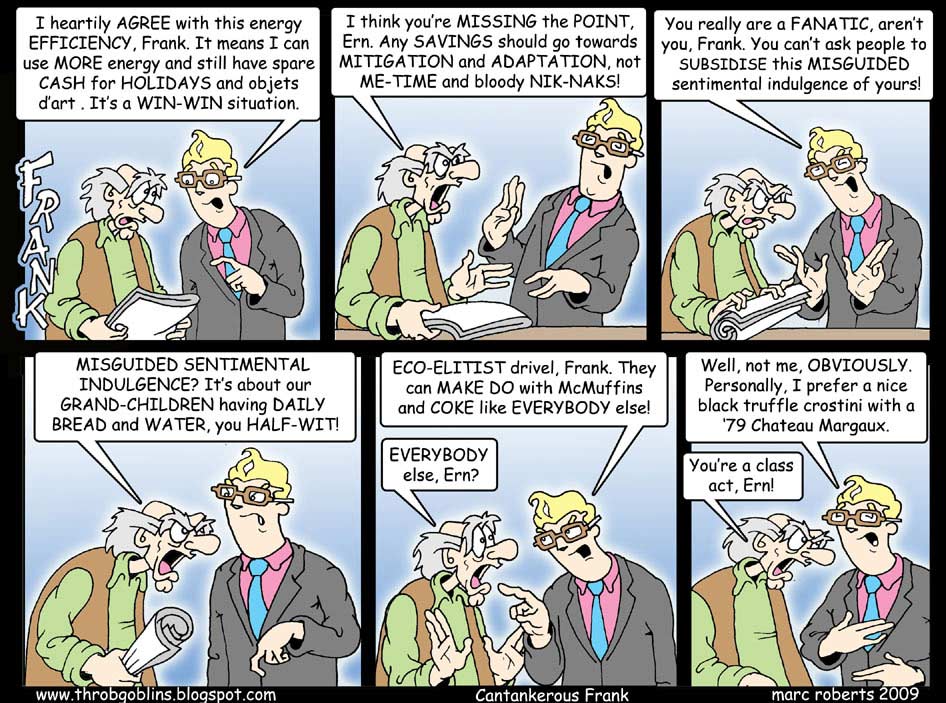 I was reading the New Yorker for this week, when I came across this article called the "THE EFFICIENCY DILEMMA". According to the article, which described the Jevons Paradox, efficiency is not necessarily as hopeful as it sounds.
I was reading the New Yorker for this week, when I came across this article called the "THE EFFICIENCY DILEMMA". According to the article, which described the Jevons Paradox, efficiency is not necessarily as hopeful as it sounds.It seems that for years many have stated that greater efficiency is better as the article quotes "fuel economy of their new-car fleets thirty per cent by 2016..."Everyone Wins". The Secretary of Energy seemed to agree.
The article talks about Jevons Paradox, which basically stated that as things grow more efficient, it is actually worse. The example that was used was the air conditioner. At first, no one used it as the price was much too high. As the efficiency grew greater, the price came down and more people started to rely on air conditioner to cool their homes. As the author states, everyone had lived well before, but suddenly it was not cold enough. Soon the system grew even more efficient and it was placed in cars. This represented a whole new place for air conditioner. With time, air conditioners trickled down to even the cheapest cars. Since, air conditioner makes the car less efficient, at the end, it seems that the air conditioner actually used more electricity then its original inefficient state. The author also provides a very similar example with the refrigerator, as with time these grew bigger and better, but more food is wasted.
In the end, the author states "'It is rather hard to demonstrate the validity of his proposition, but certainly the historical evidence to date is wholly consistent with what he was arguing.' That might be something to think about as we climb into our plug-in hybrids and continue our journey, with ever-increasing efficiency, down the road paved with good intentions."
I think the article has some really valid points, it's quite persuasive in proving that this gentleman from the First Industrial Revolution could be correct. India and China are now seeing cars for more people, though they like the Tata Nano they are small cars, but they still emit more pollution than motorcycles, bicycles, trains, or walking.
Any thoughts? Is it better to not strive for efficiency? Too much to ask? Can we prove otherwise? Will history repeat itself?
Do note: the linked article on the New Yorker's website does require a subscription, which is why I tried to quote most of the big items. It is also on Page 78-85 on the DEC. 20 & 27, 2010 issue.
No comments:
Post a Comment